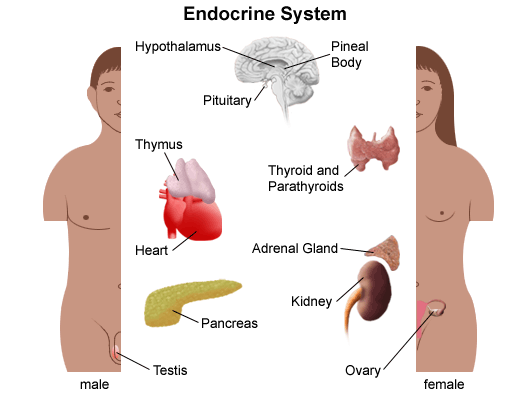Hormones are the chemical substances that are produced by different glands in the body and are carried to various organs through blood.
They are very important for different functions of the body, particularly metabolism. Some hormones are lifesaving, like Insulin that controls blood sugar without which we can not survive.
Most of them, yes. We need to understand why the hormone level is high or low by different tests mainly blood tests. In most the cases treatment is much simple than it is thought.
The word CURE can be used in not many cases in medical science, so we prefer the word CARE.
This depends on the exact diagnosis. If this is due to deficiency of a hormone and we are replacing the deficient hormone then in most of the cases the answer is yes.
The classic example is Primary hypothyroidism where the thyroid gland fails to secrete thyroid hormone we need to replace the thyroid hormone.
This is like natural therapy, body is deficient and we are giving it from outside.
Well, not as a routine. Some of the problems in the field of Endocrinology has connection with genes no doubt.
We have a lot of misconception about the word STEROID. Remember there are different steroid hormones. We have natural steroids in our body, they are life-saving.
Taking excess of them with the misconception of extra benefit can be harmful.
Family history of thyroid is the main risk factor. If you have a family history and you have symptoms suggestive of under- or overactive thyroid, it is worth seeing your doctor for a physical examination and blood test.
Remember thyroid disease is 10 times more common in women than in men.
No, certainly not. Thyroid cancer is not common. A big thyroid gland for whatever the reason is called goitre.
There are certain clinical pointers are there which tells us whether thyroid cancer is high on the card or not. If yes, we can perform a simple test called FNAC to see a few cells under the microscope.
Baby in mother’s womb needs good thyroid balance of the mother, thyroid hormone problem is a common cause of miscarriage.
Also for growth of the baby depends on mother’s thyroid balance. It is very rare to have thyroid problem in the baby for mother’s thyroid issue, so there is nothing much to worry from that point.
Definitely yes, and it should be treated. There are a lot of myths about pubertal changes, early puberty may not be beneficial in a number of ways, most importantly inability to handle it and peer matching. Also we need and treat the reason of early puberty.
Yes, there is treatment for short stature. Initially good balanced diet with exercise, thyroid function screening and treatment of chronic diseases are tried with regular growth monitoring.
If all these factors are corrected and growth is not adequate then tests are done to rule out growth hormone deficiency. Growth hormone deficiency is treated with growth hormone.
The long bones in the hands and legs consist of three portions from birth. We grow taller as the bones grow in childhood. Once puberty is reached the sex hormones, oestrogen’s in girls and testosterone in boys cause fusion of bones.
Once bones are fused we cannot grow any more. This is why adults cannot grow taller. In general girls grow till around 18 months after starting cycles and boys till around 18 years.
Men are puppet in the hands of Hormones
Related Articles